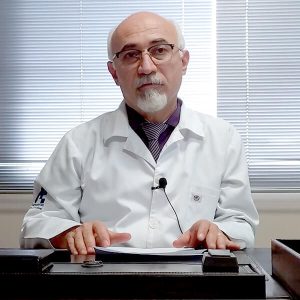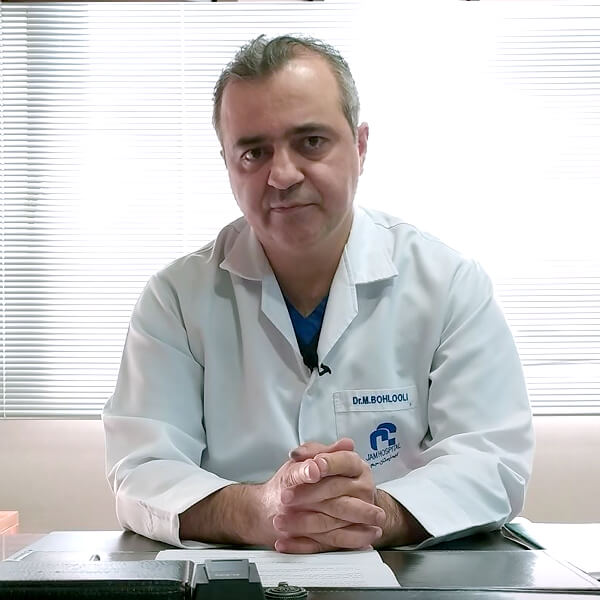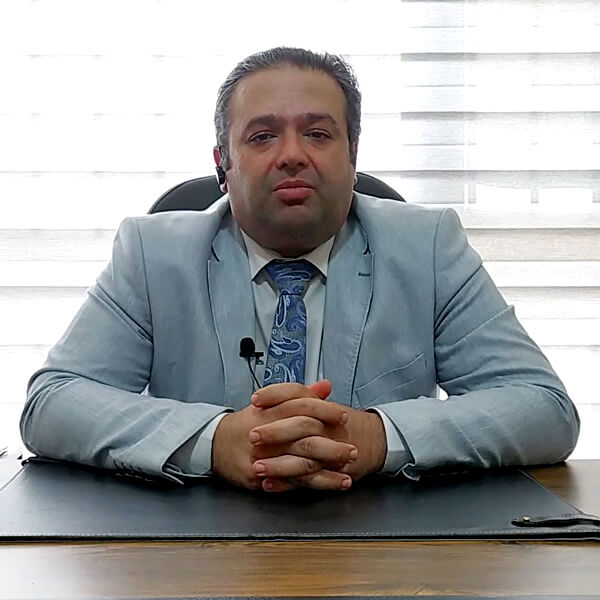Dr. Babak Heydari Aghdam
Cardiologist, angiography and angioplasty specialist fellowship
In this video, Dr. Babak Heydari Aghdam cardiologist and international cardiology fellowship and Director of Jam Hospital, talks about the signs of an unhealthy heart.
The text of Dr. Heydari Aghdam‘s speech
In the name of God, I am Dr. Babak Heydari Aghdam, a cardiologist and cardiology subspecialist. Hello to you all. What are the signs of an unhealthy heart and blood pressure symptoms? I start with blood pressure. High blood pressure generally has no symptoms. About 50 to 60 percent of cases in most developed countries, when a patient goes for a periodic check-up or something like a cold, they find out that they have high blood pressure. That’s why we always recommend that patients check their blood pressure when they visit.
Hypertention does not have any symptoms unless it becomes a complication. what does it mean? For example, high blood pressure can lead to a heart attack. or stroke or kidney failure. It is just showing its symptoms there. Or when a patient loses his vision due to bleeding. At that time, the patient actually suffers from the complications of high blood pressure.
Hypertention itself has no symptoms. Some people state symptoms, for example, they say that I get a headache when my blood pressure rises. Or I get heaviness in the chest. Or I get short of breath. Yes, well, they state these symptoms, but according to the studies that have been done, these symptoms are not that different in those who have high blood pressure and those who do not have it. It means that it can be said that hypertention is a silent disease. There are no visible signs. But about the signs of an unhealthy heart. There are several things that we tell heart patients to pay attention to. One of the most important of them is chest pain. In the flat part of the chest or the left side of the chest. It is mostly burning. It increases with activity and decreases with rest. Shortness of breath that increases during activity and during rest.
Note that if you had a daily activity and now you can no longer continue that activity, you should think about your heart. what does it mean? It means that you used to go get groceries every day, come back and you didn’t have any symptoms. If you say now, “I’m going to go back, I’ll get tired soon, or I’ll be short of breath, or I’ll get chest pain,” the first thing you should think about is a heart problem. These are the most common symptoms. Another symptom is heart palpitations. Patients say that sometimes I suddenly get heart palpitations when I sit down. My heart is beating fast. Some patients have an abnormally high heart rate and they never had this symptom before. Or sometimes they have a state where patients say “My heart [stomach] dropped.” As if an irregular or misplaced beat happens in the heart. This is a type of arrhythmia that has many causes. From a simple stress to heart problems.
These three signs are the main signs that you may see. There are other symptoms that may cause swollen feet. The patient comes and says that both my feet have been swollen for some time. I touch my leg and I leave fingerprints. This is one of the symptoms seen in patients with heart failure with narrowing and widening of the heart valve. These symptoms may also be seen in advanced stages. Shortness of breath is sometimes such that patients say that I get short of breath at night when I want to sleep. Twenty minutes after sleeping, I wake up with shortness of breath. This is also one of the symptoms of heart diseases, when the patient suffers from shortness of breath during sleep due to pulmonary congestion, which is called orthopnea, and the person wakes up suddenly.
Sometimes the symptoms of heart diseases are wheezing. Wheezing is more common in lung diseases, but it is rarely seen in heart diseases such as mitral valve stenosis or heart failure. In general, chest pain, shortness of breath, heart palpitations, swelling of hands and feet are common symptoms in heart patients. When we see these symptoms, we should think that the heart might not be healthy. There are other symptoms, but the main and key symptoms are these three or four that you should pay more attention to.




